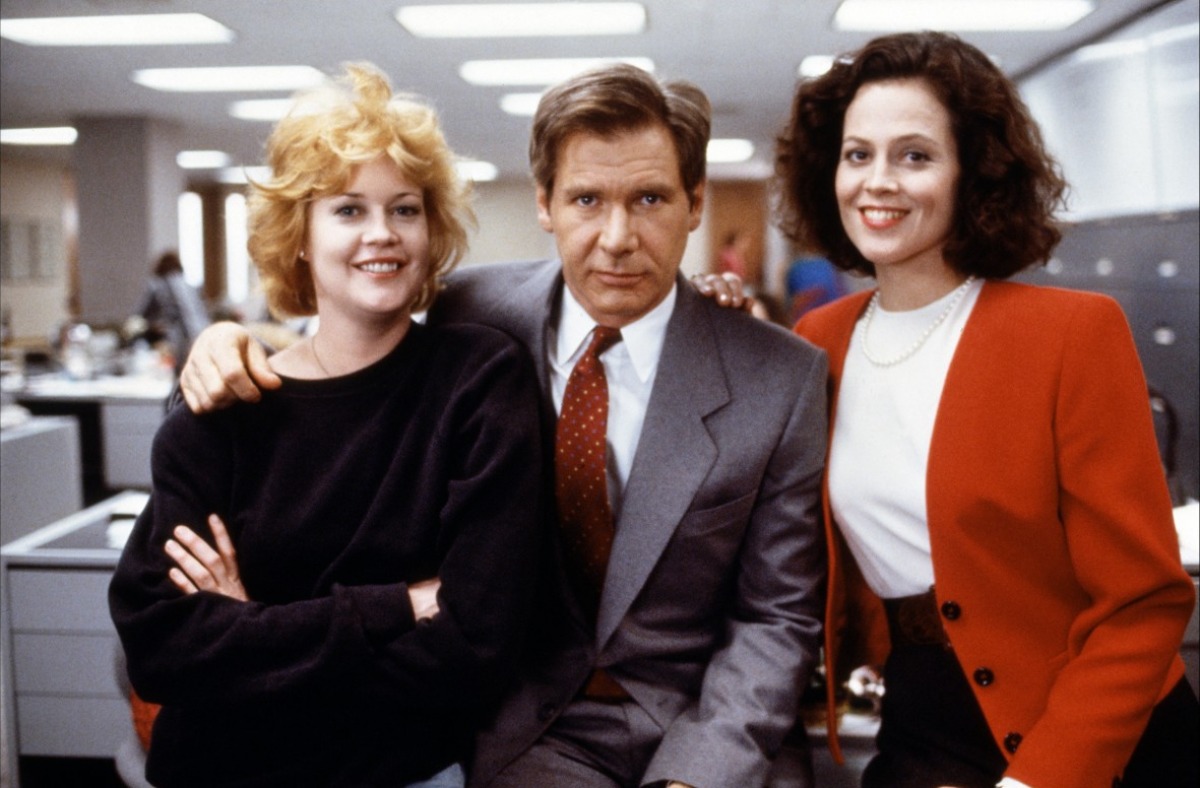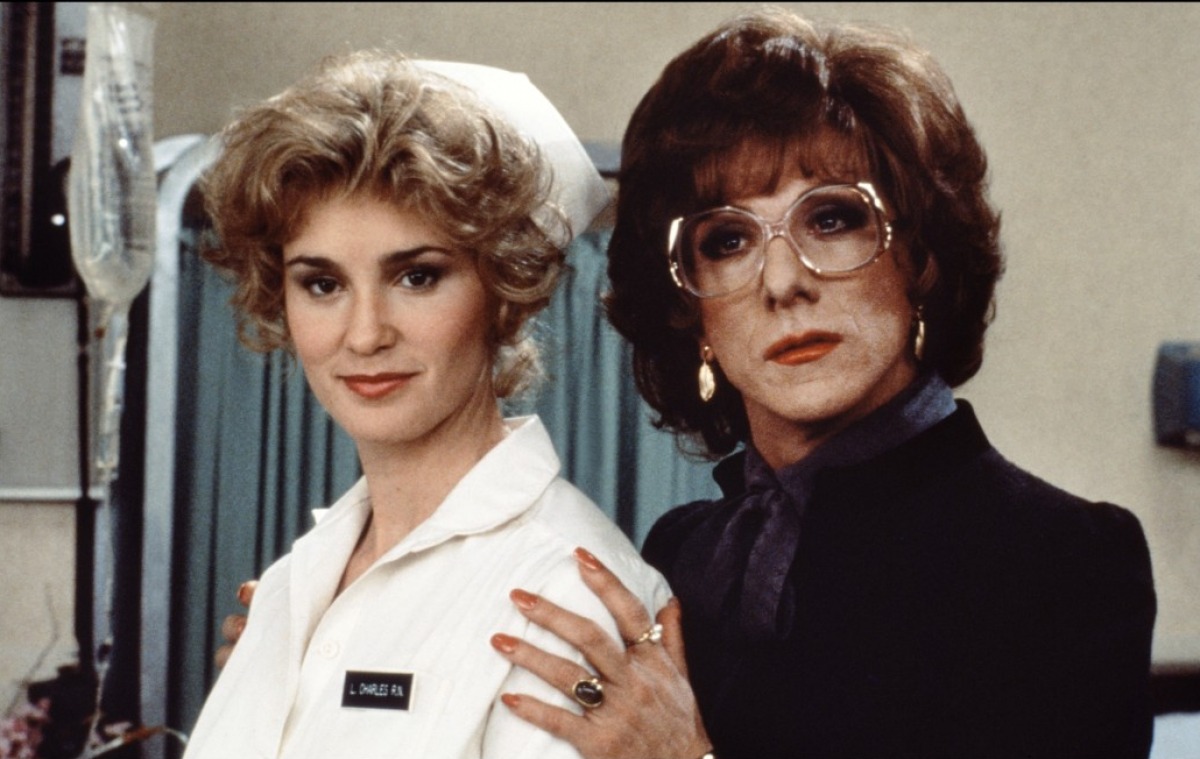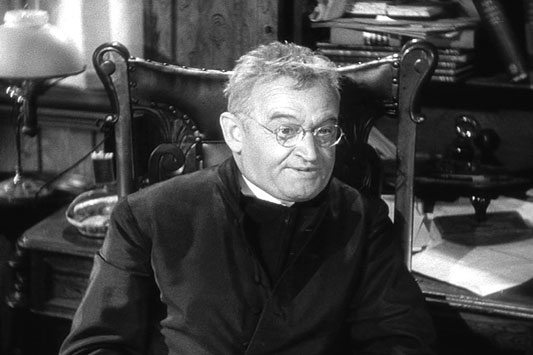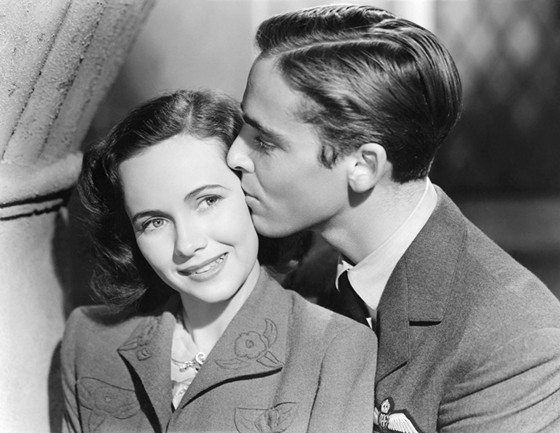6. Al Pacino in 1993 (Scent of a Woman, Glengarry Glen Ross)

A lot of people dispute the fact that Al Pacino deserved his Oscar for Scent of a Woman, one of the eight nominations of his career, and one of two he received in 1993. Though no one really objects to a legend like Pacino having an Oscar, Scent of a Woman is seen by many as just another sappy, by-the-books growing up story in which Pacino was given an award for playing blind.
They feel he should have won his statuette for one of his nods in the 70s, including emblematic work in The Godfather, Serpico and Dog Day Afternoon. As a blind retired Lieutenant in the US army “babysitted” by a prep school student (Chris O’Donnell), Pacino’s is predictably great, but not as great as in those early highlights in his career.
His second nomination that year, in the Best Supporting Actor category, was for Glengarry Glen Ross, James Foley’s and David Mamet’s ingenious portrayal of a real estate office in the 70s. Pacino plays one of the salesman pressured by the boss, Blake (Alec Baldwin), to compete with his colleagues so he can avoid being fired.
Anything goes in this cutthroat capitalist game, at least until a robbery committed by one of the salesmen brings consequences to everyone in the office. It was the sole Oscar nomination for the film, a critic favorite, and Pacino eventually lost to fellow 70s legend Gene Hackman, for his performance in Clint Eastwood’s Unforgiven.
7. Sigourney Weaver in 1989 (Gorillas in the Mist, Working Girl)

Sigourney Weaver is uniformly brilliant in almost everything she does, but there’s no denying she had a particularly great run of parts in the mid-to-late-80s. Her first Oscar nod came in 1987, for her second portrayal of Ripley in Aliens, James Cameron’s follow-up to Ridley Scott’s classic sci-fi thriller.
Two years after that, she fell back to the Academy’s graces with two performances in very different movies, first as Dian Fossey in Michael Apted’s Gorillas in the Mist, the real-life tale of a scientist studying apes and trying to protect them from extinction. Though the film was nominated in another 4 categories, it won none, and Weaver lost the Best Actress race to Jodie Foster, for The Accused.
Running against her own cast-mate Joan Cusack, Weaver was also nominated for Working Girl, the Melanie Griffith-led comedy-drama in which she plays Griffith’s recently transferred secretary’s boss, who tries to pass a great idea given by Griffith as her own.
Also nominated for Best Picture, Best Director (Mike Nichols) and Best Actress (Melanie Griffith), Working Girl ended up winning just the Original Song Oscar for Carly Simon’s “Let the River Run”, while Weaver (and Cusack) lost the Supporting Actress race to Geena Davis, collecting her award for The Accidental Tourist.
8. Jessica Lange in 1983 (Frances, Tootsie)

Though it was subject of great scrutiny once details of Frances Farmer’s real life came to be public knowledge, Graeme Clifford’s biopic Frances, about the successful Hollywood actress of the 30s/40s who was involuntarily institutionalized and went through a lot of abuse from her family and the doctors at the institute she was held in, remains a heartrending drama about the plight of a woman misunderstood and mistreated by virtually everyone around her.
It’s a grim and somber affair, and Jessica Lange’s terrific performance as Frances stands in the center of it, a multifaceted and deeply heartfelt piece of work that earned one of her two Oscar nods that year – she ended up losing the Best Actress race to Sophie’s Choice’s Meryl Streep.
She had better luck in the Supporting Actress category, however, taking home the prize for her turn in hit comedy Tootsie and scoring the first Oscar of her impressive career – she would win again in 1995, this time as the lead in period drama Blue Sky, and would be nominated other three times.
Said by many to be a “consolation prize” for not winning for Frances, Lange’s prize still stands as a handsome reward for a terrific year in a career that was virtually just beginning (her debut role was in 1976’s King Kong, of course), and would go on to produce many more unforgettable performances.
9. Barry Fitzgerald in 1945 (Going My Way)

Bing Crosby-led comedy Going My Way was a huge hit in the 1945 Oscars, winning a whopping 7 awards that night, including Best Picture, Best Director, Best Actor and Best Supporting Actor. The movie is mostly remembered these days, though, as the one that led the Academy to commit a weird mistake, and such an obvious one that strict rules were actually written after it happened to make sure it didn’t occur ever again.
Playing against Crosby’s young Father O’Malley, whose life before priesthood earned him an unusual worldly knowledge, Barry Fitzgerald was the aging and conventional Father Fitzgibbon. It was a standout role for Fitzgerald, a character actor who was always terrific in roles almost always too small to grant him award attention.
The Academy’s unclear rules about where any given actor should be nominated by its voters, however, led Fitzgerald to compete in both the Best Actor (against his cast mate Crosby) and Best Supporting Actor, in the same year, for the same performance! Academy members found reason after the nominations were announced, and Fitzgerald eventually won in the Supporting category, much more fitting to the size and nature of his role in the movie. After that mix-up, the Academy only allowed each performance to be nominated in one predetermined category.
10. Teresa Wright in 1943 (The Pride of the Yankees, Mrs. Miniver)

One of the great movie and television stars of the 40s and 50s, Teresa Wright had her breakout in 1941, at 23 years old, working with Bette Davis in The Little Foxes. Always tremendously likable and charismatic, Wright would go on to build a brilliant career, working steadily until 1997, at 79 years old, registering her last performance in Francis Ford Coppola’s The Rainmaker.
Her twice-nominated year came early on, though, only a year after her first nod for The Little Foxes, in 1943. She won for her supporting performance in that year’s Best Picture winner Mrs. Miniver, the story of a British family struggling to survive the first months of WWII, in which she played the older son’s recently married wife, who meets a tragic end.
Her other nomination that year was in the leading role category, playing opposite Gary Cooper in the biopic The Pride of the Yankees. The movie follows closely the life story of Lou Gehrig, the beloved baseball player who succumbed to ALS disease and retired prematurely in 1939 – Wright plays his loving wife Eleanor in a moving portrayal of their complicated relationship and the trials Lou’s disease brought upon them. Wright lost the Best Actress Oscar to her own cast mate in Mrs. Miniver, Greer Garson.
11. Fay Bainter in 1939 (White Banners, Jezebel)

Often called upon by Hollywood to play kind, agreeable wives, mothers or sisters, Fay Bainter’s true habitat was the stage, where she achieved brilliant performances in a wide range that went from comedy to drama, perhaps most notably in the original production of Dodsworth, where she played the vain Fran, a middle-aged woman obsessed with growing old.
She wouldn’t be cast in the role for the motion picture version of the play (she was replaced by Ruth Chatterton), but her performance would launch her movie career, which went until just before she died, in 1968.
In 1939, she was doubly nominated by a pair of performances that truly show her range. She eventually won for her portrayal of Aunt Belle in William Wyler’s Jezebel, starring Bette Davis. As the protagonist’s stern, reproving aunt, Bainter excelled in a part that was somewhat different from the ones she was most accustomed to play.
She was also nominated for her leading turn in the mostly forgotten White Banners, a melodrama in which a homeless woman approaches a kind family and gets hired as a cook so that she can see what kind of young man the son she gave up for adoption has become. She lost the Oscar to Davis, who took home the award for her performance in Jezebel.
Author Bio: Caio Coletti is a Brazilian-born journalist, a proud poptimist, and has too many opinions to keep them all to himself.